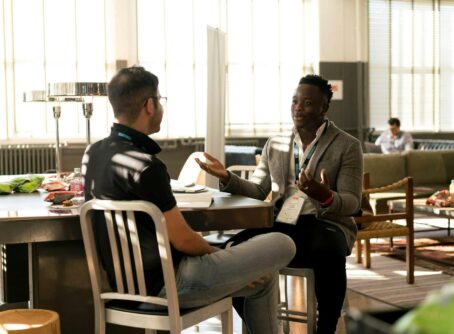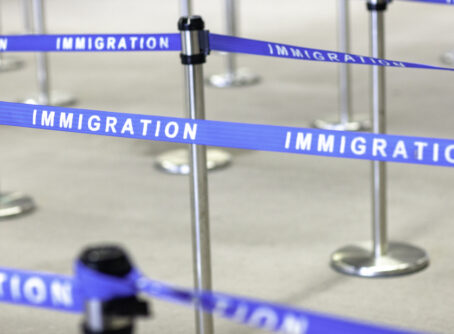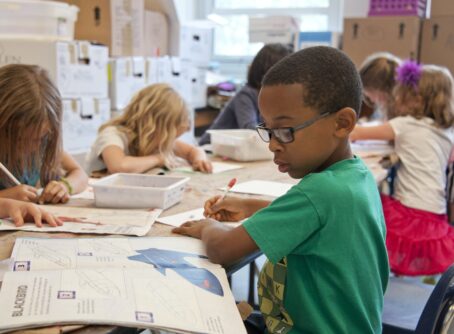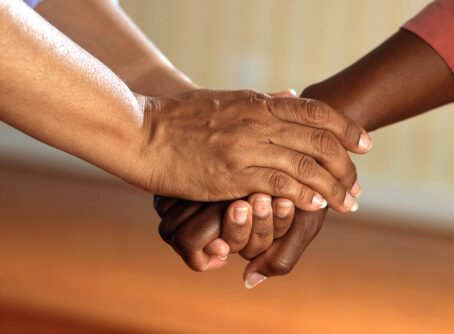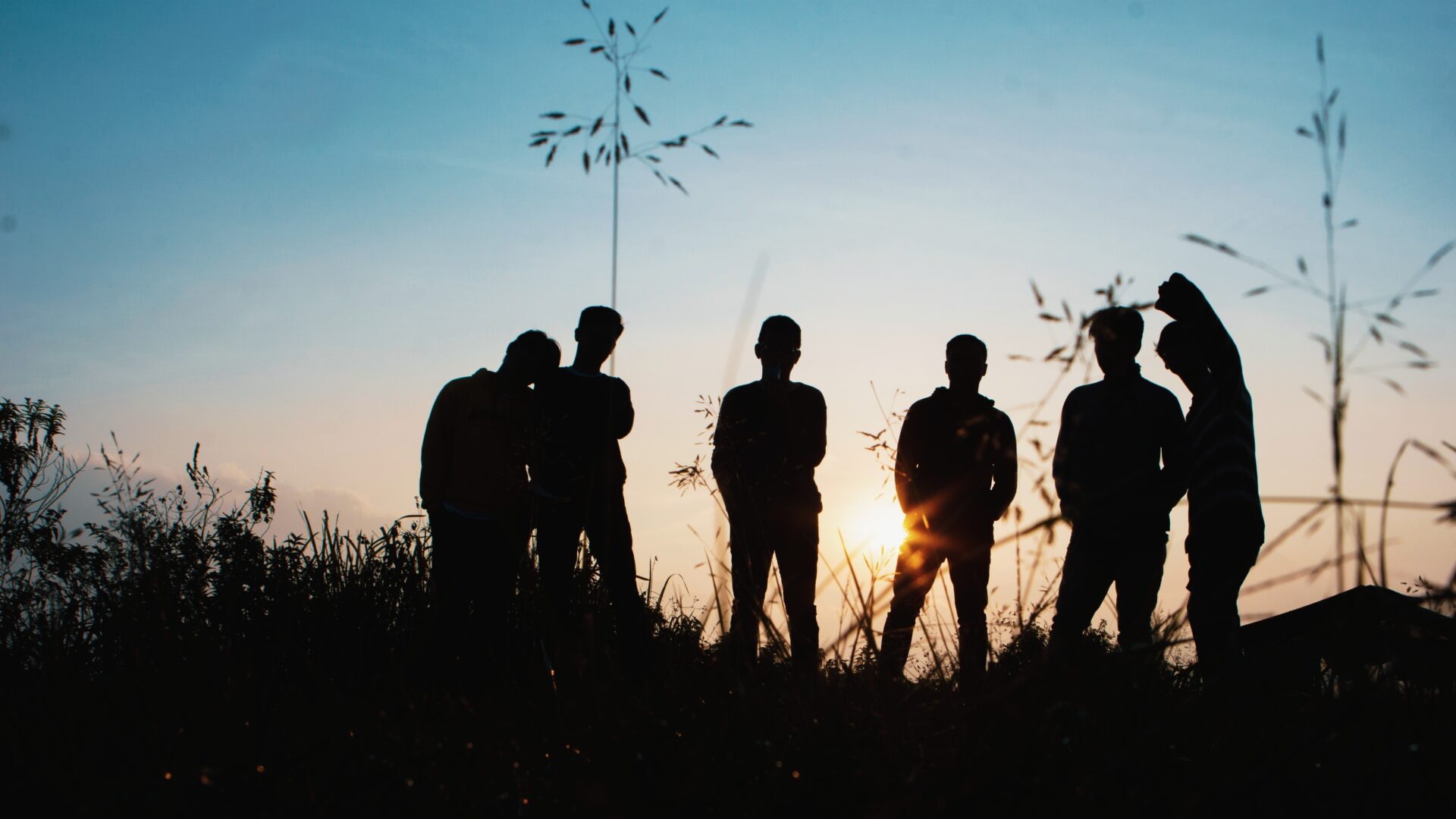
This interview is a part of Shared Justice’s Series, Voices of Youth Diversion. This series looks at ways that community organizations, in partnership with state and local governments, are working together to rehabilitate youth and reduce the harmful impacts of youth interaction with the justice system.
Emily Fromke: Could you share a little bit of your personal story and how you became so passionate about youth justice?
Iliana Pujols: I am now at the Connecticut Justice Alliance; this was my first youth justice related position. I’ve been here since I was 19. I was introduced to the Connecticut Justice Alliance because I was expelled from high school my sophomore year and ended up at an alternative high school. When I graduated, the lady who ran the program had a really good relationship with my job, the Alliance. At the time the Alliance was doing work around girls in the system and they were putting together a “girls report.” They planned on hosting a huge event at the Capitol, having a panel, all kinds of things, none of which I’ve done before. And I thought, “Oh OK, well, these people want to pay me for my time to interview me; About my experience in the system, let me just go do it.” Long story short, that happened to be at the same time that the Alliance was beginning their youth-adult partnership in which they created the Justice Advisors. They are essentially a group of directly impacted young people who work alongside the Justice staff in our mission to end the criminalization of kids.
I started showing up meeting after meeting, and little by little, I started becoming interested. I started learning about recidivism and the different rates at which kids are getting arrested in different towns and getting pushed out of schools: all the things that I didn’t know before and thought,“OK, this is actually interesting.” [sic].
And fast forward a little bit longer. They were hiring for somebody to oversee the work of the justice advisors. They offered me the full time job and I ended up taking it, and since then have evolved in this field of work. I’ve signed up for tons of fellowships and opportunities, and I’ve worked with multiple organizations. It’s just kind of taken off since there.
When I was younger, I was arrested multiple times between the ages 12 and 18. The first time I was arrested, I was turning 12. So between the age of 12 and 18 I was on probation all six years and probably arrested more than 10 times. The only thing I’ve never been is incarcerated. I’ve been on house arrest and probation as well as in the court house.
EF: You have experienced all these things that we’re talking about personally and you still work with people who do?
IP: The goal of the Justice Advisors is to only hire people who have been in the system.
I can’t bring you in if you’ve never been on probation: if you’ve never been in the back of a cop car or put in the middle of a courthouse; if you’ve never had to correct yourself on trial, if you’ve never been incarcerated, or any of those things. We figured it makes sense to work with those who have experience with that.
We talk a lot now about [this model] as not just something of interest in the youth justice or the child welfare space, but it should also be an interest in the housing or drug addiction space. Anything it is, there should always be somebody working in those positions who can relate.
EF: Could you talk a little bit more about addressing the root causes of youth criminalization rather than just resorting to youth probation?
IP: When we started the Justice Advisors, we were a very small team, maybe six people. We knew that we didn’t speak for the entire population of kids who have been impacted by the system. We needed more people, so we started doing these things called Vision Sessions. That’s pretty much where we go into a facility or a program or community space and we have conversations with people, primarily those who have been impacted and straight up ask them: what could have kept you out of the system? Where did the system fail you? Where do you need support? What led to you being in this situation? We did almost two years worth of Vision Sessions. From this, we identified seven root issues, essentially all of them being rooted in bias or racism in some way. For example: lack of trust in the system or abuse of authority. Kids didn’t have any hope, so lack of hope. Lack of trauma being addressed in communities and trauma being caused in communities, economic instability, housing instability, and forgetting the need for equal opportunities. Long story short, we had the larger conversation about if we want to prevent crime, if we want to reduce crime, if we want kids to know how to be emotionally intelligent or whatever it may be, we have to address these areas. We’re making sure that we’re always bringing the conversation back to addressing those root issues if we’re ever going to get to a point of solving the larger issues we’re seeing in the justice system.
EF: For our readers who might not be so familiar with the term, could you talk about youth diversion and explain how these programs have the potential to rehabilitate youth?
IP: I think when a lot of people talk about youth diversion, they automatically talk about the preventative measures (so how to keep a young person away from entering the system). That might look like juvenile review boards or youth service bureaus, where instead of referring a kid to the court, they might put them through peer mediation, or they have to write an apology letter or they have to have a restorative conversation with the person they may have caused harm. Other preventative measures look different in other spaces; for example, schools might have credible messengers staffed in the schools, which are essentially people who have been impacted by a system and are now contributing to their community or supporting others by sharing their personal experiences to make sure that they don’t repeat the same path that they did. Some of the areas where diversion programs could be more heavily implemented could be for the kids who commit the most serious crimes. I don’t say, “Let’s not take a kid who committed murder and put them in a space where they might be disconnected from society for a bit.” I’m saying I have an option other than jail. For a kid who committed murder or rape or whatever it may be, why do we not have diversionary programs for those kinds of kids? That just means that they need more intense care. There are larger issues to be addressed, but it’s not something that’s often addressed. Essentially diversionary programs are aimed to keep a child out of the system.
EF: You personally have overcome many challenges to get where you are today as a policy director at the Connecticut Justice Alliance. What would you say has most helped you to overcome those challenges and allowed you to have those opportunities?
IP: I’ve always dedicated my “success” to my alternative high school. If I didn’t have a face that taught me what it meant to be resilient, what it meant to lead with integrity, what it meant to have purpose, to have respect for yourself and others, I probably wouldn’t be where I’m at today. If it could be one personal tool or something other than myself, I think it would be building relationships. I wouldn’t have the opportunities that I had if I didn’t go out and build relationships and challenge myself to learn more. I do that because relationships are important and wanting to build more means having to build more relationships.
EF: One thing I’ve noticed recently in the youth justice advocacy world is that there’s been a push to remove the word “juvenile” from different organizations’ vocabulary. I was wondering if you could talk about this trend and how the words that we use to talk about people and public policies matter.
IP: I think when you hear the word juvenile, you automatically get some sort of bad taste in your mouth. It automatically refers to juvenile delinquency, whether some people use it to categorize kids as general or a specific type of kid. I think my biggest issue with it is the media. Often you’ll see a kid of color might commit a crime very similar to a suburban white kid, but the black kid will be called the juvenile, and the white kid is just a teenager. You have teachers who refer to kids as juveniles all the time, and those kids automatically associate that with a negative thing. If you’re constantly calling a kid a juvenile, they’re going to go ahead and act like one, so just be conscious of how you describe certain kids. I think this leads to the larger conversation of the kinds of kids that they tend to push out of schools.
EF: Speaking from your expertise, how can we end youth criminalization? Are there any states in particular that you could point to that have reformed their youth criminalization laws in a way that other states should follow?
IP: I don’t think there’s any one way. I think a simple way to say how we get to a point where we end the criminalization of young people is by addressing the root issues that are leading to crime and trying things outside the box. I think a lot of states get caught up and not wanting to lead the way in something different. Connecticut has been considered a state to pave the way in a lot of youth justice reform and has been very successful in doing a lot of things in terms of shutting down our largest youth prison. We have a lot of smaller facilities now. The judiciary is working on being more rehabilitation focused. I think we do have to get out of the regular practice of incarcerating kids (transferring them to the adult system at ridiculously young rates). There are a lot of states that have different good practices. States that have higher minimum ages of adult transfer are a great example, or states that actually have set minimum ages of arrests. All of the states, although I can speak specifically more to Connecticut, need to do a better job at thinking outside of the box of how we’re addressing crime.
EF: The Shared Justice community is made-up of young Christians who are passionate about seeking justice in their communities and in the world. What advice would you give to young adults who want to get involved in advocating for youth justice in their communities?
IP: Identify organizations that are already doing the work and support those organizations. Get as many people as you can to support those organizations. A lot of people think it’s a great idea to start a new initiative that is essentially just reinventing the wheel. That happens to create a lot of silos or separate initiatives when we could all be kind of collaborating on one. Read a lot. Reading a lot helps with understanding how to ask questions. You will never know the answer if you do not ask the question. This world of work can be very confusing, and it can be intimidating when it doesn’t need to be.
EF: Is there anything that I haven’t asked you that you wish I had asked, or that you just want to share or talk about?
IP: I think a big piece that is important when we talk about reforming any part of the youth justice system is the political piece: needing to get politically involved, needing to vote, needing to participate in public hearings, needing to talk to your legislators. Legislators listen to their constituents most of the time. I can’t speak for every state, but getting involved in the legislative process is probably one of the most boring and important things you need to do if you want to change any part of the system. It’s a long process and it’s slow. That’s where most of the change has to happen.
Caroline Tichenor: Do you think it would be more important to focus more on the local policies or to look at more of a national or statewide scale?
IP: I think local is more important. I say that because it takes even longer to push federal policy. Even if you change the law federally, that doesn’t mean it’s going to trickle down to all the states the same. Implementation is a thing that a lot of people don’t pay attention to. It’s cool and pretty easy to support federal work in ways that you can: writing testimony, signing petitions, whatever. But definitely a focus on the state level/local work would make more sense. If a lot of states do something, that might catch national attention anyways.
Madeline Pannell: What’s something you want these youth advisors to know who have gone through the system and who are then talking to other kids who are potentially involved in the system as well?
IP: When we lead in our work at CTJA, I always try to give them as much information as possible before they even go and explore these conversations. These are not easy issues to talk about. Our focus is always giving the young people not only the professional skills, not only the soft and hard skills, but also giving them the personal stuff. You might just need support in public speaking and owning your confidence and what it means to tell your own story and how to protect that story and protect others who might be involved in that story. We’re giving them as many tools as possible to not only do the work professionally, but also be personally okay while they’re doing it. Giving young people as many tools as possible to make sure they’re protecting themselves while also being able to do the work in a way that’s healthy for them [is important].
Iliana Pujols is the Policy Director at the Connecticut Justice Alliance. She is a founding member of the Justice Advisors and currently serves as a member of the 2021 World Congress on Justice with Children Child and Youth Advisory Group. She is a frequent panelist for national organizations, speaking to her expertise around youth and young adult partnership and advocacy based on her personal experiences and professional success.
Want to get involved?
1. Sign up to receive Shared Justice’s monthly newsletter and stay up to date on the latest content, resources, and highlights.
2. Write for us! To learn more about writing for Shared Justice, email emily.fromke@cpjustice.org.
3. Form a Political Discipleship group to practice meaningful political engagement in your community. The Center for Public Justice’s Political Discipleship is a guide for active Christian citizenship, designed to empower people with skills and tools to shape policy and address inequality and injustice in their communities. To learn more about starting a group, visit our website or contact emily.fromke@cpjustice.org

